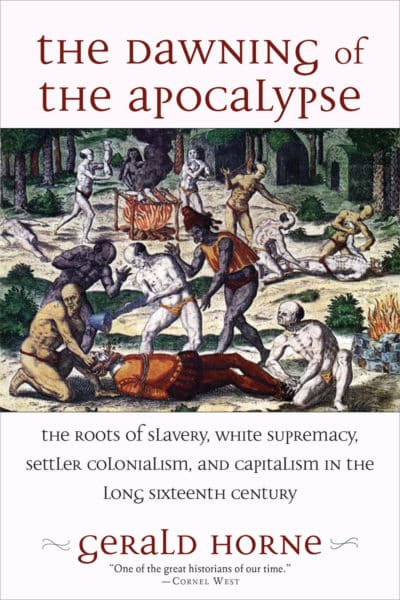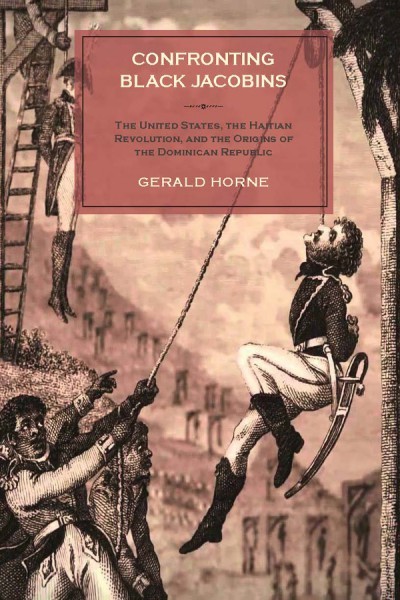This one digs in deep.
In this interview, Gerald Horne goes so far as to argue for the migration of Black people from the U.S., abroad because, “given the dangerous turn” things have taken here, “we’re going to need people to mobilize on our behalf” from overseas, “in case things get more precarious.”
Around 20 minutes in, Brother Elliot asks Horne to touch on a common theme of his, the questioning of America’s ‘creation myths:’ “Those who consider themselves to be sophisticated refer to an ‘incomplete revolution,’ as if the founders had in mind ‘Others’ not defined as white, but perhaps forgot to include them.” This deep engagement with America’s creation myths, and the subject of “class collaboration around ‘whiteness'” (~00:42 min) leads to questions that have recently arisen around teaching the past, and in particular, an onslaught of attacks on “Critical Race Theory” (~1:17:00 min).
This line of discussion leads beyond this continent’s bounds, towards a discussion of Black internationalism (~1:35:00), international solidarity and reparations. In answer to some questions from Brother Richard, Horne contrasts the situation of Black people in the U.S. with that of Black people in the Caribbean, especially with regard to reparations. The conversation continues to deepen as Horne’s interviewers ask questions about how to face the class divide that exists in the Black community (1:40:50) and how this will impact the distribution of reparations.
Get ready for one of Gerald Horne’s wide-ranging interviews!
Listen in full at “Time For An Awakening,” hosted by Brother Elliot and Brother Richard, or below…
Gerald Horne is author of The Dawning of the Apocalypse: The Roots of Slavery, White Supremacy, Settler Colonialism, and Capitalism in the Long Sixteenth Century, The Apocalypse of Settler Colonialism: The Roots of Slavery, White Supremacy, and Capitalism in Seventeenth-Century North America and the Caribbean, Jazz and Justice: Racism and the Political Economy of the Music, and Confronting Black Jacobins: The United States, the Haitian Revolution, and the Origins of the Dominican Republic, all published by Monthly Review Press.



Comments are closed.